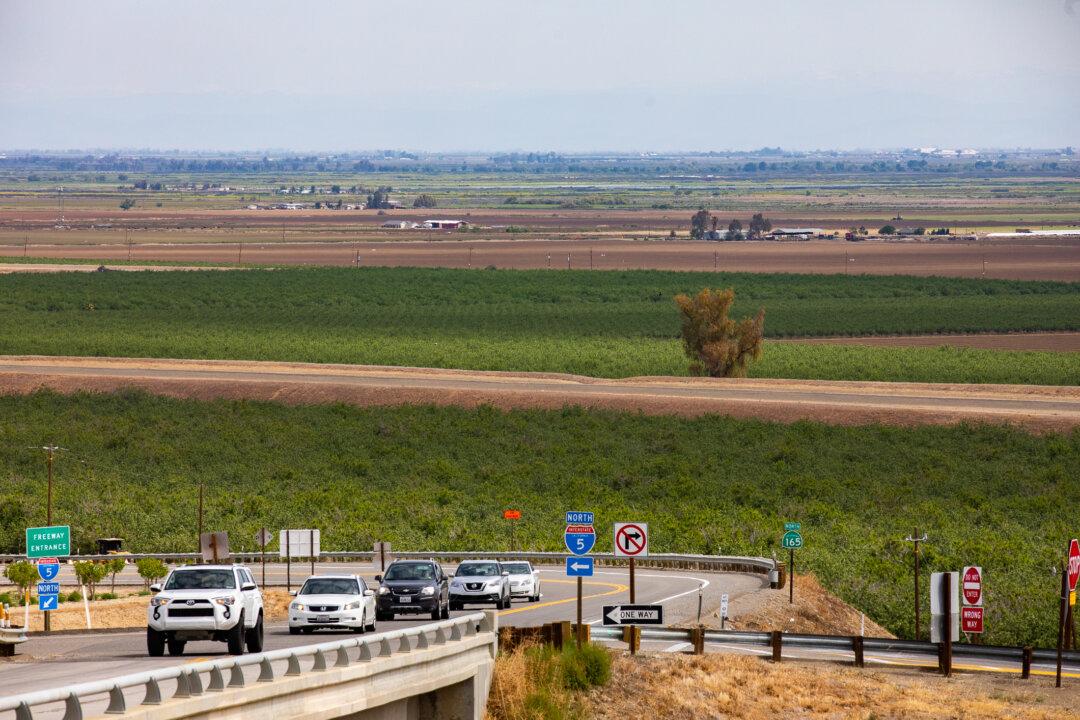SACRAMENTO, Calif.—California water officials have implemented more hefty water cuts to the Sacramento–San Joaquin Delta watershed, affecting thousands of users from Fresno to parts of Northern California, as the state continues in its third year of drought.
The restrictions, ordered by the State Water Resources Control Board, began on June 8 and affect more than 400 public water systems and 4,252 water rights. The measures restrict cities, agricultural workers, and growers from pumping water from the rivers and streams in the delta.





